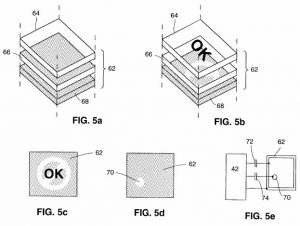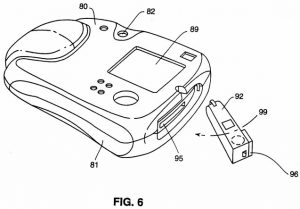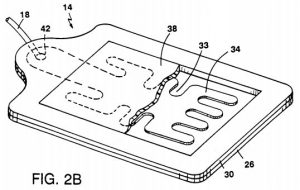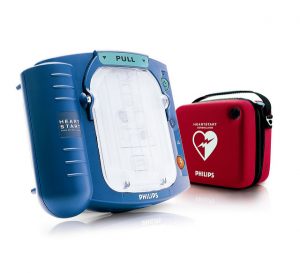On November 3rd, a joint request for temporary stay was filed in the District of Massachusetts in a patent infringement case which has played out between Dutch medical electronics firm Koninklijke Philips (NYSE:PHG) and Chelmsford, MA-based medical product developer ZOLL Medical Corporation (NASDAQ:ZOLL) since June 2010. The motion indicates that the two parties in the case engaged in lengthy settlement talks in late October and “have now reached substantial agreement on aspects of a settlement structure.”
The District Court granted the joint stay motion on November 6, 2017, and the parties were to file either a stipulated dismissal or joint status report by November 28, 2017. On November 28 the parties requested an extension of the temporary stay, explaining: “The parties are still actively engaged in settlement discussions but require additional time to potentially resolve this matter.” A date of December 18, 2017, was jointly proposed for either the filing of a stipulated dismissal or joint status report. The District Court granted this extension on November 29, 2017.
These requests for temporary stay follow a jury verdict issued in the case on August 3rd, which awarded reasonable royalties to both Philips and ZOLL for infringement of patents asserted by both parties in the case. That verdict awarded Philips a total of $10.4 million for infringement of three patents, while ZOLL was awarded a reasonable royalty of $3.3 million for two patents it asserted in the case.
 The largest portion of Philips’ award was an $8.9 million award for infringement of U.S. Patent No. 5879374, titled External Defibrillator with Automatic Self-Testing Prior to Use. The ‘374 patent, issued in March 1999 and referred to as “the self-test patent” in the case, covers an external defibrillator with a high-voltage delivery system, a controller and a self-test system with a defibrillator status indicator which reduces the need for manual battery and performance tests. In the jury verdict, Philips lost on an argument that ZOLL had willfully infringed the ‘374 patent.
The largest portion of Philips’ award was an $8.9 million award for infringement of U.S. Patent No. 5879374, titled External Defibrillator with Automatic Self-Testing Prior to Use. The ‘374 patent, issued in March 1999 and referred to as “the self-test patent” in the case, covers an external defibrillator with a high-voltage delivery system, a controller and a self-test system with a defibrillator status indicator which reduces the need for manual battery and performance tests. In the jury verdict, Philips lost on an argument that ZOLL had willfully infringed the ‘374 patent.
 The other $1.5 million portion of Philips’ reasonable royalty award stems from the Dutch firm’s assertion of two patents collectively referred to as “the waveform patents.” U.S. Patent No. 5607454, titled Electrotherapy Method and Apparatus and issued in March 1997, covers a method for applying electrotherapy to a patient through electrodes, the method involving a delivery of electrical energy to the patient in a multiphasic waveform which is shaped according to monitored patient-dependent parameter value. This invention automatically compensates for differences among patients being treated with electrotherapeutic pulses. Philips also asserted U.S. Patent No. 5749905, titled Electrotherapy Method Utilizing Patient Dependent Electrical Parameters and issued in May 1998. It covers a method for delivering electrotherapy to a patient while monitoring a patient-dependent parameter while discharging an energy source to deliver electrical energy to the patient.
The other $1.5 million portion of Philips’ reasonable royalty award stems from the Dutch firm’s assertion of two patents collectively referred to as “the waveform patents.” U.S. Patent No. 5607454, titled Electrotherapy Method and Apparatus and issued in March 1997, covers a method for applying electrotherapy to a patient through electrodes, the method involving a delivery of electrical energy to the patient in a multiphasic waveform which is shaped according to monitored patient-dependent parameter value. This invention automatically compensates for differences among patients being treated with electrotherapeutic pulses. Philips also asserted U.S. Patent No. 5749905, titled Electrotherapy Method Utilizing Patient Dependent Electrical Parameters and issued in May 1998. It covers a method for delivering electrotherapy to a patient while monitoring a patient-dependent parameter while discharging an energy source to deliver electrical energy to the patient.
 ZOLL Medical’s $3.3 million reasonable royalty award was attributable to two of its patents asserted in the case, collectively referred to as the “electrode and alarm patents.” These include U.S. Patent No. 5330526, titled Combination Defibrillation and Pacing Electrode and issued in July 1994. It claims an electrode for transcutaneously delivering defibrillation pulses to a patient’s heart which includes an insulating substrate, a conducting plate and a layer of electrolytic gel which prevents the conducting plate from contacting the patient’s skin; the resulting invention reduces the stinging sensation which can be felt in a patient’s skin. ZOLL also asserted U.S. Patent No. 5391187, entitled Semiautomatic Defibrillator with Heart Rate Alarm Driven by Shock Advisory Algorithm. Issued in February 1995, it covers a semiautomatic cardiac defibrillator for receiving an electrocardiograph (ECG) signal from a patient which includes a heart rate alarm circuit as well as processing circuitry for determining the onset of abnormal heart rhythms.
ZOLL Medical’s $3.3 million reasonable royalty award was attributable to two of its patents asserted in the case, collectively referred to as the “electrode and alarm patents.” These include U.S. Patent No. 5330526, titled Combination Defibrillation and Pacing Electrode and issued in July 1994. It claims an electrode for transcutaneously delivering defibrillation pulses to a patient’s heart which includes an insulating substrate, a conducting plate and a layer of electrolytic gel which prevents the conducting plate from contacting the patient’s skin; the resulting invention reduces the stinging sensation which can be felt in a patient’s skin. ZOLL also asserted U.S. Patent No. 5391187, entitled Semiautomatic Defibrillator with Heart Rate Alarm Driven by Shock Advisory Algorithm. Issued in February 1995, it covers a semiautomatic cardiac defibrillator for receiving an electrocardiograph (ECG) signal from a patient which includes a heart rate alarm circuit as well as processing circuitry for determining the onset of abnormal heart rhythms.
A second amended complaint filed by Philips against ZOLL back in April 2012 identified a number of products marketed by ZOLL which allegedly infringed a series of patents owned by Philips, including the ‘374, ‘454 and ‘905 patents. These include the AED Pro series of automated external defibrillators as well as the SurePower lithium ion defibrillator battery system. A different jury verdict in the case issued in December 2013 found that ZOLL’s AED products constituted direct infringement of Philips’ ‘374 patent, although the jury found against Philips’ allegations of ZOLL knowingly contributing to or inducing the infringement of that patent. According to a market research report from Grand View Research, the global market for defibrillator technology is expected to rise in worth up to $21.92 billion by the year 2025, with Philips and ZOLL remaining main competitors in the field.

![[IPWatchdog Logo]](https://ipwatchdog.com/wp-content/themes/IPWatchdog%20-%202023/assets/images/temp/logo-small@2x.png)



![[Advertisement]](https://ipwatchdog.com/wp-content/uploads/2024/04/Patent-Litigation-Masters-2024-sidebar-early-bird-ends-Apr-21-last-chance-700x500-1.jpg)

![[Advertisement]](https://ipwatchdog.com/wp-content/uploads/2021/12/WEBINAR-336-x-280-px.png)
![[Advertisement]](https://ipwatchdog.com/wp-content/uploads/2021/12/2021-Patent-Practice-on-Demand-recorded-Feb-2021-336-x-280.jpg)
![[Advertisement]](https://ipwatchdog.com/wp-content/uploads/2021/12/Ad-4-The-Invent-Patent-System™.png)







Join the Discussion
No comments yet.